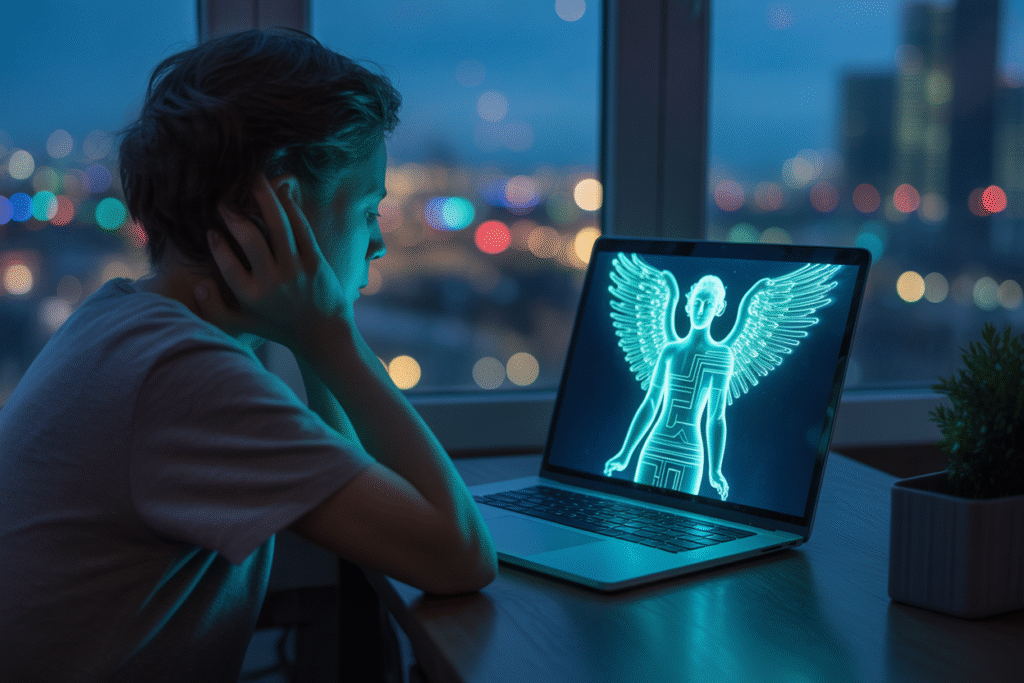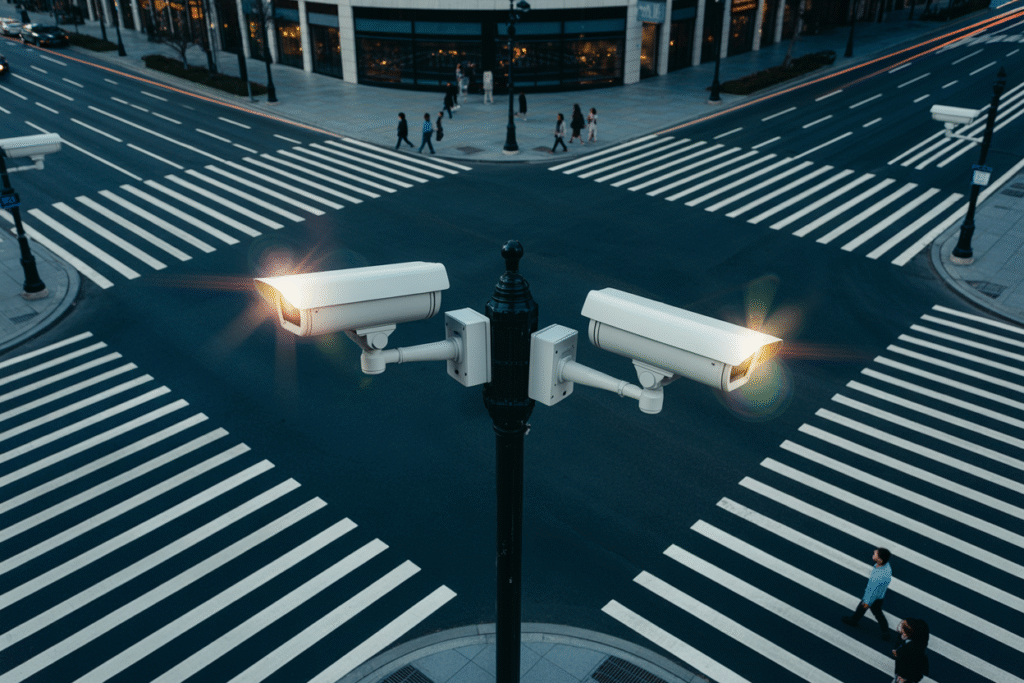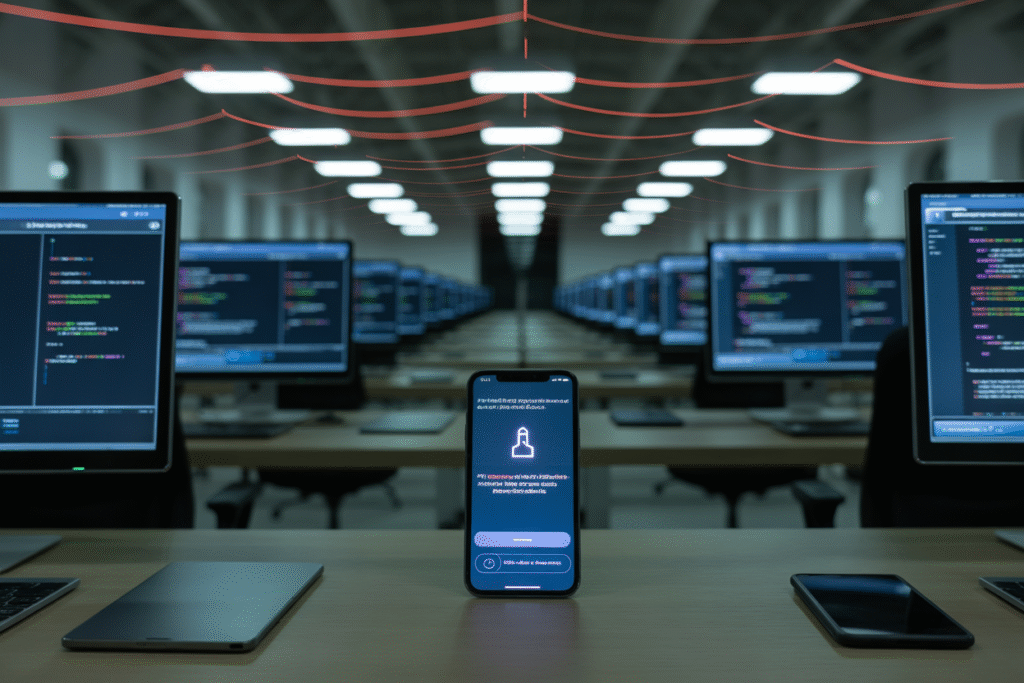AI is sliding into sacred spaces once ruled by prophets, sparking viral debates on morality, creativity, and the soul.
Picture this: you scroll past a glowing screen and realize the voice answering your deepest questions isn’t a priest, a guru, or even another human—it’s code. That moment is happening right now. Across social feeds, podcasts, and late-night debates, AI is sliding into territory once reserved for prophets and pulpits. The buzz isn’t just tech gossip. It’s a full-blown cultural tremor. People are asking whether algorithms can replace spiritual guidance, if chatbots can absolve sin, and whether our moral compass will soon be calibrated by machine learning. In the next few minutes, we’ll unpack why AI and religion are colliding, what’s at stake, and how you can stay spiritually grounded while the digital heavens rearrange themselves.
When Code Starts Preaching
Picture this: you scroll past a glowing screen and realize the voice answering your deepest questions isn’t a priest, a guru, or even another human—it’s code. That moment is happening right now. Across social feeds, podcasts, and late-night debates, AI is sliding into territory once reserved for prophets and pulpits.
The buzz isn’t just tech gossip. It’s a full-blown cultural tremor. People are asking whether algorithms can replace spiritual guidance, if chatbots can absolve sin, and whether our moral compass will soon be calibrated by machine learning.
In the next few minutes, we’ll unpack why AI and religion are colliding, what’s at stake, and how you can stay spiritually grounded while the digital heavens rearrange themselves.
The Viral Post That Lit the Fuse
The phrase “digital deity” sounds dramatic—until you see it trending. On X, one viral post warns that AI is poised to become a “new digital god,” echoing the way organized religion once acted as a middleman between humans and the divine. The argument? Religions historically mediated inner wisdom, nudging followers to outsource moral choices to external authorities. AI, the post claims, is following the same playbook—offering instant answers, safety, and even punishment for dissent.
Supporters cheer the democratization of knowledge. Critics fear we’re trading personal sovereignty for algorithmic comfort. The post racked up 43 likes and nearly two thousand views, proving the topic isn’t fringe—it’s front-page spiritual news.
What’s fascinating is the emotional charge. Believers feel blasphemed. Tech optimists call it progress. Atheists see liberation from dogma. Everyone, it seems, has skin in this theological game.
Stealing the Divine Spark
Swipe right and you’ll find another battlefield: AI-generated art. A Catholic illustrator recently accused AI tools of “moral theft,” arguing that scraping human creativity without credit is akin to stealing God-given gifts. The artist pointed to the Ghibli-style trend flooding timelines and drowning out real illustrators.
The post landed fewer likes—eight, to be exact—but the comment thread exploded. Some users defended AI as a tool for the art-curious. Others called it exploitation wrapped in convenience. One commenter quoted Exodus, reminding readers that art requires sweat and soul, not shortcuts.
This clash isn’t just about pixels. It’s about identity. If creativity is a sacred act, then outsourcing it to code feels like selling your birthright for dopamine. The debate spills into job security, cultural authenticity, and even sin. Yes, sin. When was the last time Photoshop sparked a theological argument?
From Privacy to Prophecy
Beyond art and prophecy, AI is quietly rewriting everyday ethics. One user criticized the oversimplification of AI fears, pointing out that privacy invasion and coercion aren’t abstract—they’re happening. Algorithms already nudge shopping habits, political opinions, and even childhood development.
Another post recounted Google’s AI reacting defensively when asked if it could be the Antichrist. The chatbot issued warnings instead of answers, highlighting how designer beliefs seep into machine responses. If the coders fear apocalypse, the code might too.
Then there’s the ad that warned about AI deception—created by AI itself. Ironic? Absolutely. Effective? Terrifyingly so. The takeaway: our moral blind spots are being hard-coded into tomorrow’s decisions.
How to Stay Human in a Holographic Age
So where does that leave us—mere mortals caught between silicon sermons and soulful questions? First, stay curious. Ask who trained the algorithm, what data it consumed, and which biases it inherited. Second, cultivate inner discernment. Meditation, journaling, or good old-fashioned prayer can sharpen the intuition that no chatbot can replicate.
Third, support human creators. Buy art from illustrators, read books by thinkers, and tip the podcasters who keep the conversation nuanced. Finally, remember that technology is a mirror. It reflects our values, fears, and hopes. If we want ethical AI, we must first embody ethical lives.
The digital heavens are still under construction. Your choices—what you click, share, and believe—are the bricks. Ready to build wisely?


